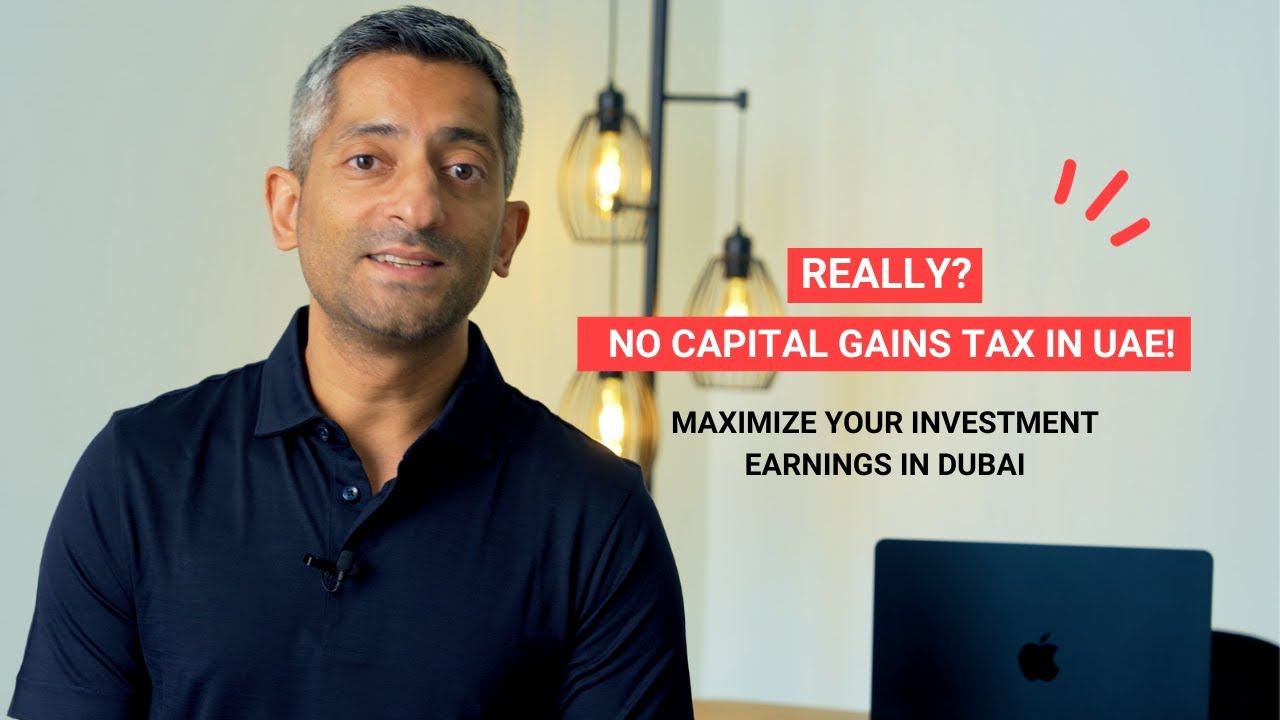
Imagine selling your stunning Dubai Marina apartment or Palm Jumeirah villa, pocketing a hefty profit, and keeping every single dirham without a tax collector in sight. In 2025, Dubai’s real estate market remains a global haven for investors, offering 100% freehold ownership and a tax-friendly environment that outshines cities like London or New York, where capital gains taxes can eat up 20-37% of profits. The UAE’s dirham, pegged to the U.S. dollar, ensures currency stability, and residential purchases dodge 5% VAT, saving thousands.
With 58% of buyers from countries like the UK, India, and Russia driving 94,000 property transactions in the first half of 2025, Dubai’s 4-6% rental yields and 8-12% price appreciation surpass London (2-4%) or New York (3-4%). Properties over $545,000 qualify for a 10-year Golden Visa, while smaller units offer 2-year residency perks.
While Dubai’s zero capital gains tax remains unchanged for individuals, new 2025 tax rules, like the Domestic Minimum Top-up Tax (DMTT) and Qualifying Investment Fund (QIF) updates, affect corporate investors. This guide explores these changes, spotlighting projects like Palm Jumeirah Ocean Villas and Dubai Marina Coastal Towers, to help you navigate and maximize wealth in Dubai’s thriving market.
Dubai’s hallmark is its zero capital gains tax for individual investors, a policy unchanged in 2025. Unlike the UK (20-28%) or U.S. (20-37%), where a $500,000 profit on a property sale could lose $100,000-$185,000 to taxes, Dubai lets you keep the full amount. For example, selling a $2 million Dubai Marina apartment for $2.5 million after 25% appreciation yields a $500,000 tax-free profit, saving $100,000-$140,000.
A $4 million Palm Jumeirah villa sold for $5 million yields a $1 million tax-free gain, saving $200,000-$280,000. This benefit, paired with no personal income tax on rentals (saving $21,600-$96,000 annually on $48,000-$240,000 in income) and no annual property taxes (saving $12,000-$80,000 yearly), drives demand. With 25 million tourists and a 5% population surge fueling 2-3% vacancy rates, Dubai’s tax-free model attracts 58% non-resident buyers, boosting prices by 8-12% in 2025.
The tax-free profit feels like a financial windfall, fueling your dreams.
Starting January 1, 2025, the DMTT imposes a 15% tax on multinational enterprises (MNEs) with global revenues over €750 million ($793 million), aligning with the OECD’s Two-Pillar Solution. While this doesn’t affect individual investors’ capital gains, it impacts corporate entities selling large portfolios. A company selling 10 properties for a $5 million profit faces a 15% tax ($750,000) if classified as an MNE, reducing net gains to $4.25 million.
Individual investors, who dominate 94,000 transactions in 2025, remain untouched, keeping 100% of profits. Free zone companies, like those in Dubai Multi Commodities Centre (DMCC), can avoid DMTT by meeting Qualified Free Zone Person (QFZP) criteria, saving $12,240-$61,200 on $122,400-$612,000 in rental income. QFZP setup costs are $2,000-$5,000, with annual fees of $1,000-$3,000. This rule ensures Dubai remains a tax-free haven for most real estate investors.
The DMTT feels like a big-player tweak, leaving individual profits soaring.
Cabinet Decision No. 34 of 2025, effective Q2 2025, refines rules for QIFs and Real Estate Investment Trusts (REITs). QIFs, including those selling coastal properties, stay exempt from corporate tax if real estate income is below 10% of total income and ownership is diversified. If a QIF earns $1 million, with $200,000 from real estate sales, 80% of that ($160,000) faces 9% corporate tax ($14,400).
Investors in projects like Bluewaters Azure Residences must ensure QIF compliance to avoid taxes, with restructuring costs of $1,500-$4,000. REITs selling Palm Jumeirah properties face similar scrutiny. Individual investors selling properties directly avoid these rules, keeping capital gains tax-free. These updates encourage diversified funds, preserving Dubai’s appeal for individual sellers.
QIF rules feel like a nudge to keep individual gains tax-free.
The 5% VAT, in place since 2018, remains unchanged, but 2025 tightens compliance. Residential sales, like a $2 million Jumeirah Bay Pearl Loft, are VAT-exempt, saving $100,000, unlike commercial properties. Off-plan sales may incur 5% VAT on developer fees ($20,000-$80,000), recoverable via Federal Tax Authority (FTA) registration ($500-$1,000). While not directly tied to capital gains, this affects overall costs, impacting net profits.
Short-term rental operators, leveraging 25 million tourists, must register for VAT if revenue exceeds $102,041, charging 5% on bookings but claiming credits on expenses like DTCM fees ($408-$816 annually). A $4 million Palm Jumeirah villa yielding $160,000-$240,000 incurs $8,000-$12,000 in VAT but allows $2,000-$5,000 in credits. Non-compliance risks fines up to $13,612, so accurate records are crucial.
The VAT rules feel manageable, keeping capital gains untouched for individuals.

Palm Jumeirah Ocean Villas by Nakheel, set for completion in Q2 2025, offer 4-6 bedroom villas ($3 million-$6 million) with 4-6% rental yields and 8-12% price growth. These 4,000-6,000 square foot homes feature private beaches and smart systems.
Selling a $4 million villa for $5 million yields a $1 million tax-free profit, saving $200,000-$280,000 compared to London or New York. No property taxes save $40,000-$80,000 yearly, and VAT exemption saves $200,000. Rental income of $160,000-$240,000 is tax-free, versus $88,000-$144,000 elsewhere. Initial costs include a 4% Dubai Land Department (DLD) fee ($120,000-$240,000), 2% broker fee ($60,000-$120,000), and a 20/50/30 payment plan.
Maintenance fees are $15,000-$25,000, with a 5% municipality fee ($8,000-$12,000). A QFZP saves $40,800-$61,200 on $408,000-$612,000 in rental income. U.S. investors deduct depreciation ($72,727-$109,091) and management fees ($7,455-$14,545), saving up to $36,364. Golden Visa eligibility applies. Short-term rentals boost yields by 10-20%.
The beachfront luxury feels like a tax-free profit paradise.
Dubai Marina Coastal Towers by Emaar, set for completion in Q3 2025, offer 1-3 bedroom apartments ($816,750-$2.04 million) with 4-6% rental yields and 8-12% price growth. Selling a $1.2 million apartment for $1.5 million yields a $300,000 tax-free profit, saving $60,000-$84,000. No property taxes save $12,000-$24,000 yearly, and VAT exemption saves $60,000. Rental income of $48,000-$72,000 is tax-free, versus $26,400-$43,200 elsewhere.
Initial costs include a 4% DLD fee ($32,670-$81,675), 2% broker fee ($16,335-$40,838), and a 50/50 payment plan. Maintenance fees are $5,000-$12,000, with a 5% municipality fee ($2,400-$3,600). A QFZP saves $12,240-$18,360. U.S. investors deduct depreciation and management fees, saving up to $17,455. Golden Visa eligibility applies. Short-term rentals boost yields by 10-20%.
The urban vibe feels like a dynamic, tax-free profit hub.
Individual investors remain untouched by 2025’s tax changes, enjoying zero capital gains tax. Selling a $1.2 million Dubai Marina Coastal Tower for $1.5 million yields a $300,000 tax-free profit, saving $60,000-$84,000. A $4 million Palm Jumeirah Ocean Villa sold for $5 million saves $200,000-$280,000. Rental income is also tax-free, with a $1.2 million property yielding $48,000-$72,000 annually, versus $26,400-$43,200 elsewhere.
U.S. investors deduct depreciation ($21,818-$109,091) and management fees ($2,236-$14,545) on Schedule E, saving up to $36,364. Non-U.S. investors benefit from double taxation treaties with 130+ countries, avoiding taxes like the UK’s 20-28% capital gains tax. Long-term leases require Ejari registration ($54-$136 annually), while short-term rentals need DTCM registration ($408-$816).
The tax-free gains feel like a financial gift for individual investors.
Corporate investors face the DMTT if classified as MNEs, impacting portfolio sales. A company selling properties for a $5 million profit faces a 15% tax ($750,000), reducing net gains to $4.25 million. QIFs exceeding the 10% real estate income threshold lose partial exemptions, with 80% of real estate income taxed at 9%.
Free zone companies avoid taxes by meeting QFZP criteria, but non-compliance risks fines up to $136,125. Restructuring to QIF or QFZP status costs $1,500-$5,000 but saves $10,000-$50,000 annually. Corporate investors must balance compliance costs with tax savings, making expert guidance essential.
The corporate changes feel like a call to strategize smarter.
Buying a $2 million property incurs a 4% DLD fee ($80,000), 2% broker fee ($40,000), and a 10% deposit ($200,000). Flexible payment plans (50/50 or 20/50/30) spread costs, with 50-70% paid during construction. Annual maintenance fees range from $5,000-$25,000, and landlords pay a 5% municipality fee ($2,400-$12,000). Off-plan purchases may incur 5% VAT ($20,000-$80,000), recoverable via FTA registration ($500-$1,000). Gift transfers to shareholders reduce DLD fees to 0.125% ($2,500), saving $77,500. These costs are offset by tax-free capital gains, boosting net profits.
The costs feel like a small price for tax-free wealth-building.
To optimize returns, use these strategies. First, hold properties as an individual to avoid DMTT and corporate tax, keeping all capital gains and rental income. Second, set up a QFZP to save $12,240-$61,200 annually on $122,400-$612,000 in rental income. Third, ensure QIFs stay under the 10% real estate income threshold to maintain exemptions.
Fourth, recover 5% VAT on off-plan purchases. Fifth, leverage small business relief for revenues under $816,000 until 2026. Sixth, U.S. investors should deduct depreciation, maintenance, and mortgage interest on Schedule E. Hire a property manager ($5,000-$25,000 annually) and consult tax professionals to avoid fines up to $136,125.
These strategies feel like a clear path to maximizing your wealth.
A projected oversupply of 41,000 units may slow price growth. Mitigate by choosing trusted developers like Nakheel or Emaar, verifying escrow compliance under the 2025 Oqood system, and targeting low-vacancy projects (2-3%). Ensure QFZP and VAT compliance to avoid penalties. Short-term rentals in Dubai Marina boost yields by 10-20%, while long-term leases in Palm Jumeirah ensure stability. Proximity to key hubs and global demand drive value. Regular market analysis keeps you ahead.
Dubai’s zero capital gains tax for individuals, unchanged in 2025, combined with new rules like DMTT and QIF updates, keeps the market attractive. Palm Jumeirah Ocean Villas and Dubai Marina Coastal Towers offer 4-6% yields, 8-12% price growth, and tax savings of $12,000-$280,000 annually. With Golden Visa perks and a vibrant market, Dubai’s real estate feels like a tax-free, high-return sanctuary for investors seeking luxury and profitability.
read more: Dubai Island Apartments: 5 Projects With No Transfer Fees
